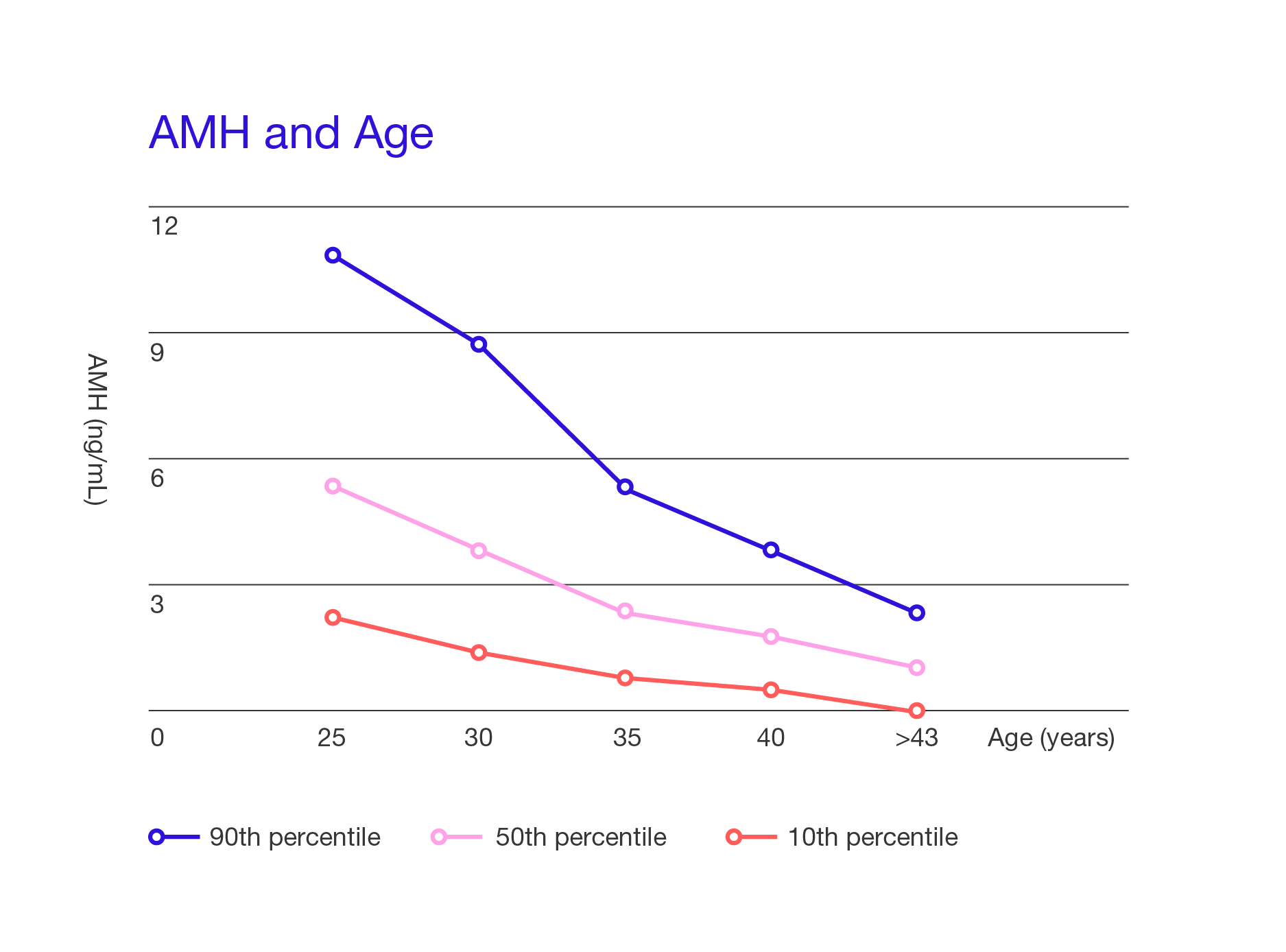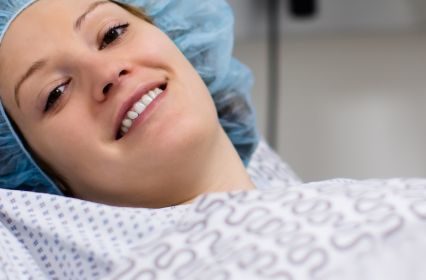Your fertility
We believe every woman deserves the facts about her biological clock. Start here to learn more about fertility and age and how time affects your ability to have a healthy baby.
Facts
Age 25
High ovarian reserve AND a high percent of genetically normal eggs
Strong chance of conceiving each month

Age 40
Fewer eggs AND each egg is less likely to be genetically normal
More difficult to become pregnant

It’s a common misconception that we have a 100% chance of pregnancy each time we ovulate (i.e., each month). Because a certain percentage of our eggs are abnormal at any age, and because fertilization has to happen within a narrow window after ovulation occurs, even a young, healthy woman trying to get pregnant has only about a 25% chance each month.
Egg count
While women are born with 1-2 million potential eggs, that is all the eggs they will ever have. anti-Müllerian Hormone (AMH) is a hormone that can be measured by a simple blood test. The level of AMH is a good proxy for egg count (or ovarian reserve), it declines with age.
Source: Shebl et al. Fertil Steril 2011

Egg quality
As illustrated, the success of IVF relies heavily on the age of the egg used. This is why egg freezing works—it allows women to freeze their young, healthy eggs and preserve their egg quality, so they can be their own egg donor later on.
Source: American Society for Reproductive Medicine

How many eggs should I freeze?
Deciding how many eggs to freeze depends on age and how many children you would like to have in the future. Not every egg will lead to a baby—no matter how young you are. However, the more eggs that are preserved, the higher the likelihood of future pregnancy.


RESEARCH CENTER
Our commitment to fertility research

We deserve better research
Too much about how we consider, treat, and care for women is based on assumption. Assumptions about what women know about fertility, and assumptions about what they want to know; assumptions about how we think, how we feel, and how and why women make certain choices about their reproductive goals.


Closing the knowledge gap
We conduct targeted research and develop educational initiatives to close the gap in knowledge about fertility and fertility preservation. Dr. Bat-Sheva Maslow is Extend Fertility's Director of Research. She has authored numerous articles in academic journals on fertility.


Recent publications
Resources

Medication instruction videos
You’ve got this! Learn how to prepare for and administer commonly used medications during fertility treatment.
- Cetrotide®
- Follistim® AQ Cartridge
- Ganirelix® Acetate
- General Intramuscular Injection
- Gonal-f® RFF 75IU Vial
- Gonal-f® RFF Redi-ject Pen
- Leuprolide Acetate
- Leuprolide (as ovulation trigger)
- Menopur®
- Novarel®/hCG
- Ovidrel®
- Progesterone in oil
Contact us to chat with a fertility advisor
Let’s talk



